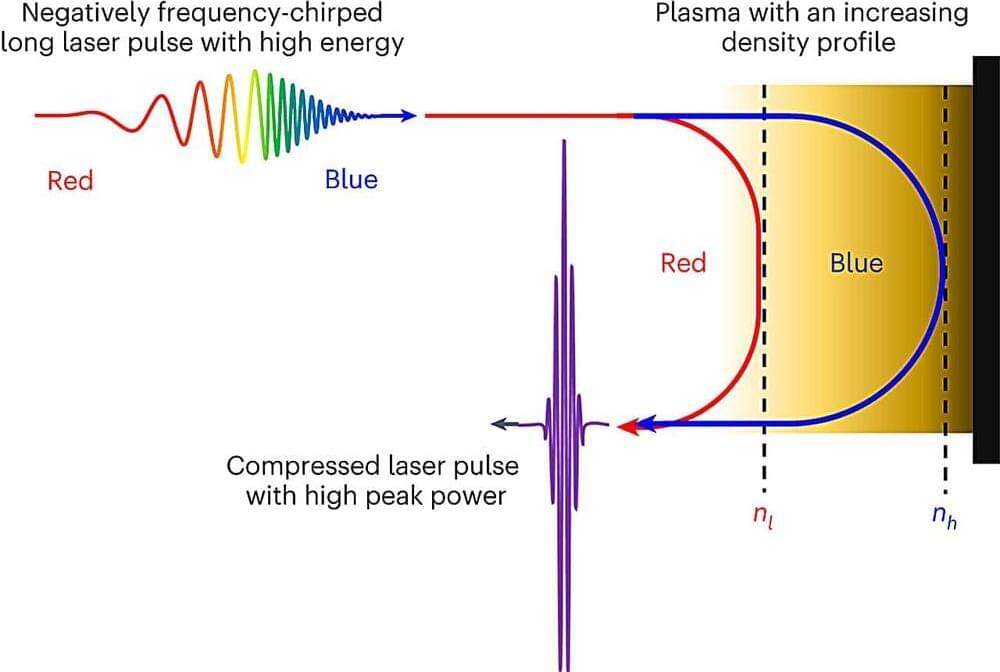A new method of creating laser pulses, more than 1,000 times as powerful as those currently in existence, has been proposed by scientists in the UK and South Korea.
The scientists have used computer simulations in joint research to demonstrate a new way of compressing light to increase its intensity sufficiently to extract particles from vacuum and study the nature of matter. To achieve this the three groups have come together to produce a very special type of mirror—one that not only reflects pulses of light but compresses them in time by a factor of more than two hundred times, with further compression possible.
The groups from the University of Strathclyde, UNIST and GIST propose a simple idea—to use the gradient in the density of plasma, which is fully ionized matter, to cause photons to “bunch,” analogous to the way a stretched-out group of cars bunch up as they encounter a steep hill. This could revolutionize the next generation of lasers to enable their powers to increase by more than one million times from what is achievable now.









Comments are closed.